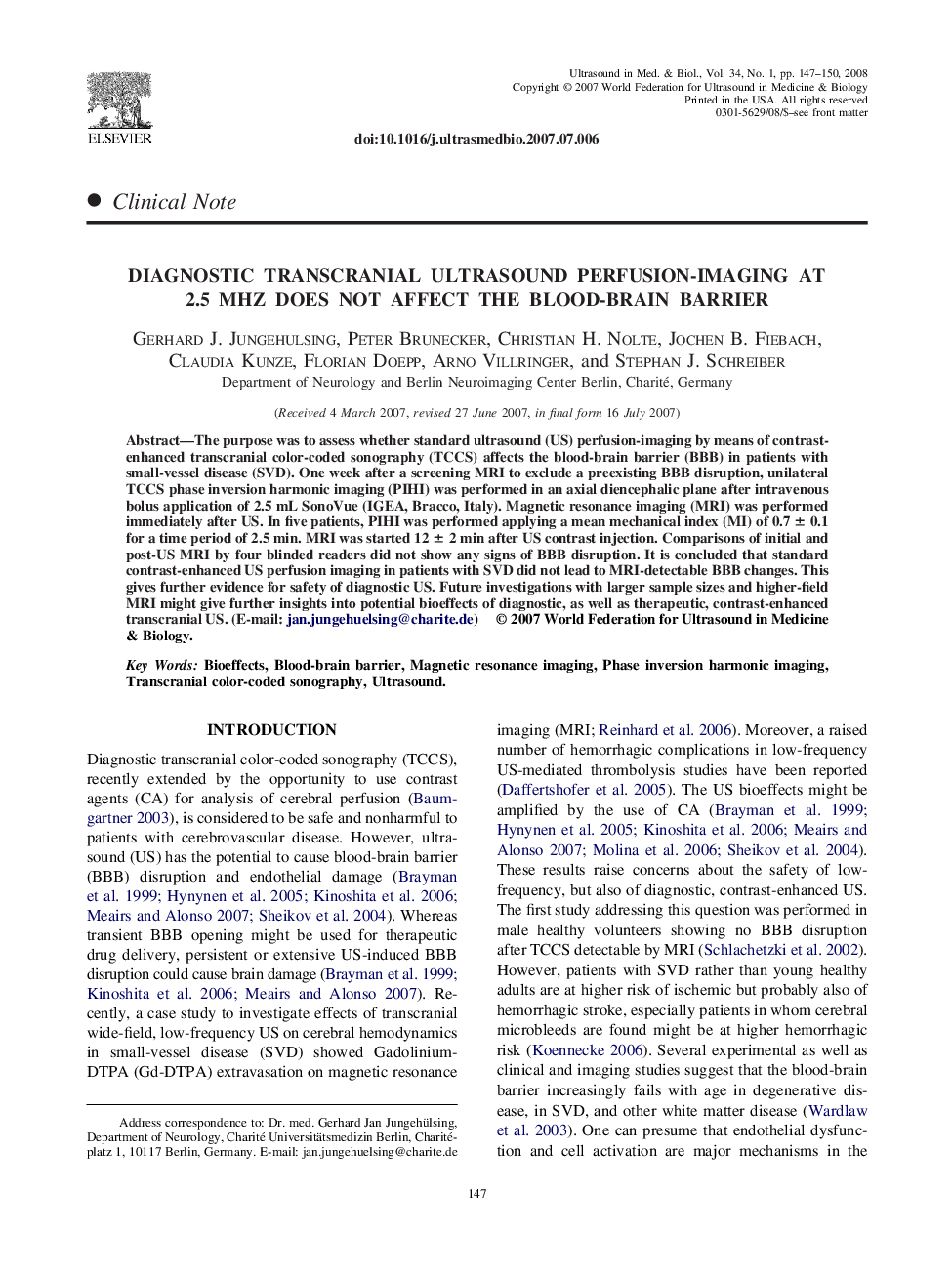| Article ID | Journal | Published Year | Pages | File Type |
|---|---|---|---|---|
| 1762740 | Ultrasound in Medicine & Biology | 2008 | 4 Pages |
Abstract
The purpose was to assess whether standard ultrasound (US) perfusion-imaging by means of contrast-enhanced transcranial color-coded sonography (TCCS) affects the blood-brain barrier (BBB) in patients with small-vessel disease (SVD). One week after a screening MRI to exclude a preexisting BBB disruption, unilateral TCCS phase inversion harmonic imaging (PIHI) was performed in an axial diencephalic plane after intravenous bolus application of 2.5 mL SonoVue (IGEA, Bracco, Italy). Magnetic resonance imaging (MRI) was performed immediately after US. In five patients, PIHI was performed applying a mean mechanical index (MI) of 0.7 ± 0.1 for a time period of 2.5 min. MRI was started 12 ± 2 min after US contrast injection. Comparisons of initial and post-US MRI by four blinded readers did not show any signs of BBB disruption. It is concluded that standard contrast-enhanced US perfusion imaging in patients with SVD did not lead to MRI-detectable BBB changes. This gives further evidence for safety of diagnostic US. Future investigations with larger sample sizes and higher-field MRI might give further insights into potential bioeffects of diagnostic, as well as therapeutic, contrast-enhanced transcranial US. (E-mail: jan.jungehuelsing@charite.de)
Keywords
Related Topics
Physical Sciences and Engineering
Physics and Astronomy
Acoustics and Ultrasonics
Authors
Gerhard J. Jungehulsing, Peter Brunecker, Christian H. Nolte, Jochen B. Fiebach, Claudia Kunze, Florian Doepp, Arno Villringer, Stephan J. Schreiber,
